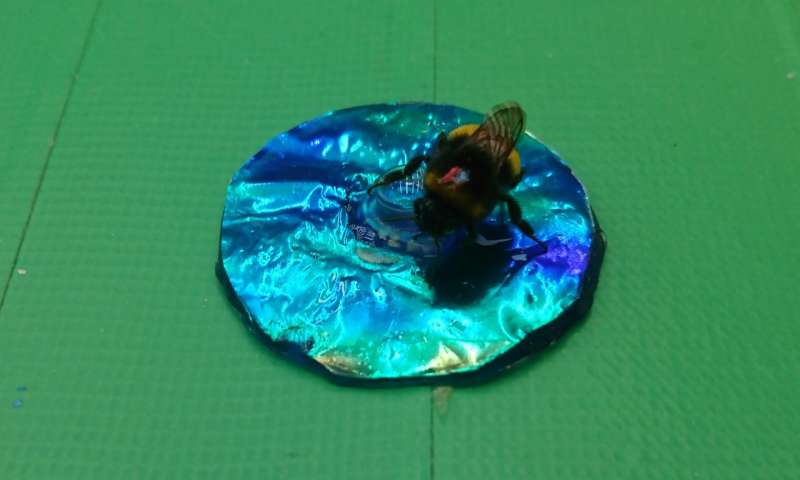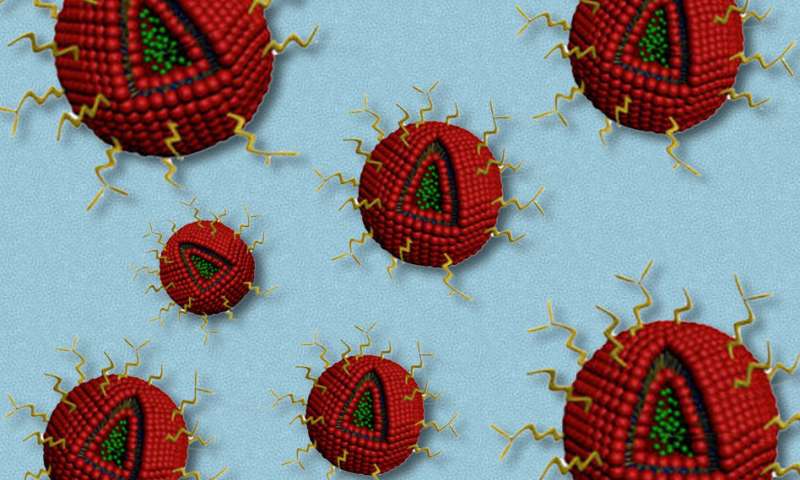Bumblebees confused by iridescent colors
Iridescence is a form of structural colour which uses regular repeating nanostructures to reflect light at slightly different angles, causing a colour-change effect.
It is...
Highly luminescent inks made from copper-iodine hybrid clusters with aggregation-induced emission
Chinese scientists have turned copper–iodine cluster molecules into aggregated, highly luminescent nanostructures for use in light-emitting diodes (LEDs). The solid-state assemblies made of complexes...
New theory finds ‘traffic jams’ in jet stream cause abnormal weather patterns
The sky sometimes has its limits, according to new research from two University of Chicago atmospheric scientists.
A study published May 24 in Science offers...
Nanoparticles carrying two drugs can cross the blood-brain barrier and shrink glioblastoma tumors
Glioblastoma multiforme, a type of brain tumor, is one of the most difficult-to-treat cancers. Only a handful of drugs are approved to treat glioblastoma,...
Engineers aim for the stars with new rocket engine
A 'self-eating' rocket engine which could place small satellites in orbit more easily and more affordably is under development at universities in Scotland and...
Microscopy advance reveals unexpected role for water in energy storage material
A material with atomically thin layers of water holds promise for energy storage technologies, and researchers have now discovered that the water is performing...
When the dinosaurs died, so did forests—and tree-dwelling birds
Sixty-six million years ago, the world burned. An asteroid crashed to Earth with a force one million times larger than the largest atomic bomb,...
Ancient meteorite tells tales of Mars topography
By looking at an ancient Martian meteorite that landed in the Sahara Desert, Lawrence Livermore National Laboratory (LLNL) scientists and collaborators have determined how...
Silicon breakthrough could make key microwave technology much cheaper and better
Researchers using powerful supercomputers have found a way to generate microwaves with inexpensive silicon, a breakthrough that could dramatically cut costs and improve devices...
Could a particle accelerator using laser-driven implosion become a reality?
Laser pulse compression technology invented in the late 1980s resulted in high-power, short-pulse laser techniques, enhancing laser intensity 10 million-fold in a quarter of...
Team cracks code to cheap, small carbon nanotubes
Imagine a box you plug into the wall that cleans your toxic air and pays you cash.
That's essentially what Vanderbilt University researchers produced after...














